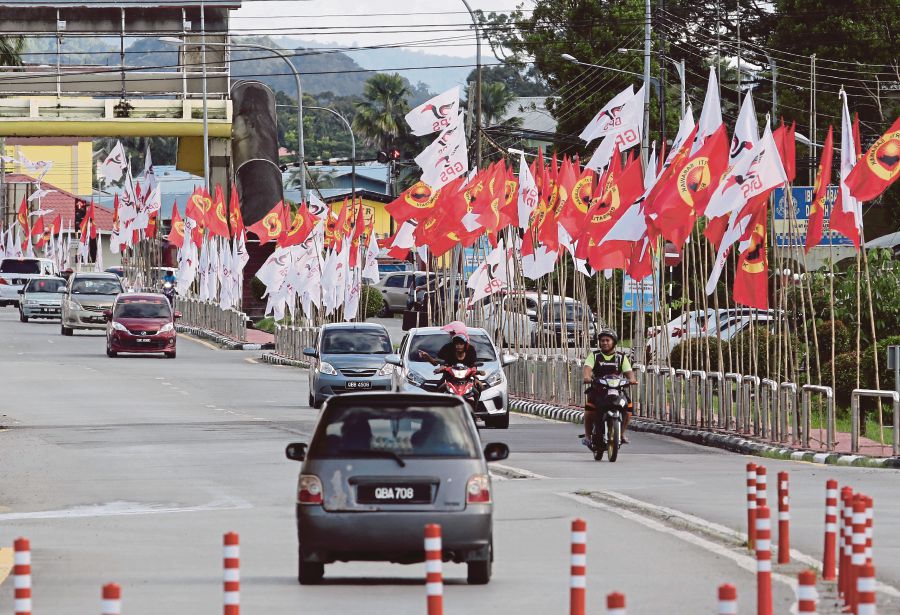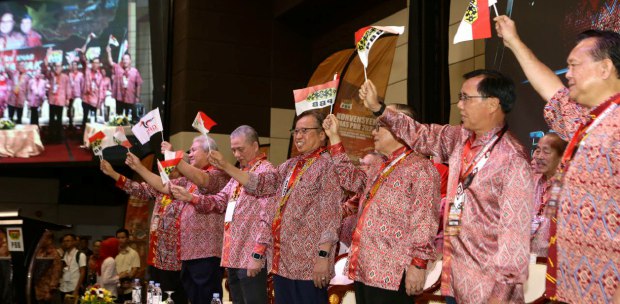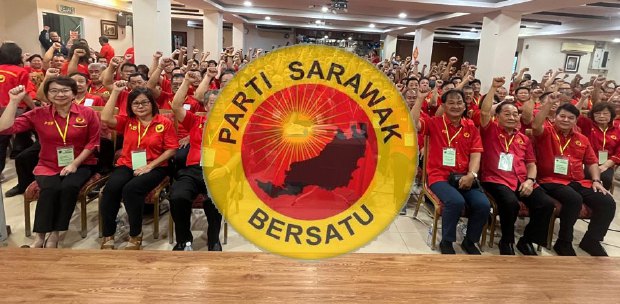Earlier this month, Sara-wak's oldest political party, the Sarawak United People's Party (SUPP), celebrated its 64th birthday with an assembly of the party's faithful at its headquarters in Kuching.
Party president Datuk Seri Dr Sim Kui Hian was obviously basking in a revival of sorts of the party's fortunes, starting when Tan Sri Adenan Satem was in office.
That revival was further cemented when Gabungan Parti Sarawak (GPS), led by Premier Tan Sri Abang Johari Abang Openg, won a crushing mandate in the 12th State Election at the end of 2021.
SUPP secured 13 seats, marking its return as the party with the most seats in the state assembly behind Parti Pesaka Bumiputera Bersatu's (PBB) 47 seats.
Despite a decent electoral outing, the state's power equation was perhaps irrevocably changed as PBB for the very first time fielded candidates in and won 47 seats, which is more than half the 82 seats in the state assembly.
This means PBB on its own secured a simple majority in the state assembly.
Dr Sim was subsequently promoted as a deputy premier, but key state cabinet portfolios that SUPP traditionally held, such as finance and public works, went to PBB.
Dr Sim had to be content with the housing and local government portfolios, and his party mate, Datuk Seri Lee Kim Shin, became state transport minister.
The two other GPS component parties — Parti Rakyat Sarawak (PRS) and the Progressive Democratic Party (PDP) — fared far worse in terms of representation in the current state government.
PRS failed to retain the public works portfolio held by its late president, Tan Sri Dr James Masing, as his successor, Datuk Joseph Salang, lost the seat he was vying for.
PDP president Datuk Seri Tiong King Sing manoeuvred his way to stand in and win a seat traditionally held by SUPP, but still failed to gain a seat in the state cabinet.
The election-eve manoeuvring, nevertheless, earned a rare if short-lived cry of protest from Dr Sim.
The obvious backstabbing in the state ruling coalition shocked many within SUPP.
The party's former treasurer, Datuk David Teng, decried the absence of "mutual respect" between parties, which he said should have been "the cornerstone of any alliance".
Teng, now retired from active politics, privately lamented the GPS infighting that led to the loss of not just the Dudong seat to Tiong, but also Mambong, another traditional SUPP stronghold, to PBB.
The Mambong assemblyman, Datuk Dr Jerip Susil, was originally from SUPP, but later joined PBB and retained the seat.
SUPP is obviously still nursing a serious schism which saw its leader in Sibu, Datuk Sri Wong Soon Koh, bolting to now head Parti Sarawak Bersatu.
Despite what Wong himself described as a "humiliating defeat" for the party's target of singlehandedly forming the state government in the last state election with only four seats won, it remains a rather potent potential threat to SUPP.
Teng believes that a true revival of his party requires it to return to its roots and the cadre system, which he describes as the foundation of the party's strength before.
The party founded on a multiracial platform to represent all Sarawakians in the fight for independence at the end of British rule may have become a bit lost along the way.
Then it had to compete with another multiracial party, the Sarawak National Party, which produced the state's first chief minister. Today, SUPP's main competitors are PSB and DAP, both Chinese-led, like it.
Survival more than thriving may be the name of the game for SUPP in the state's changed political landscape.
The writer views developments in the nation, region and wider world from his vantage point in Kuching






